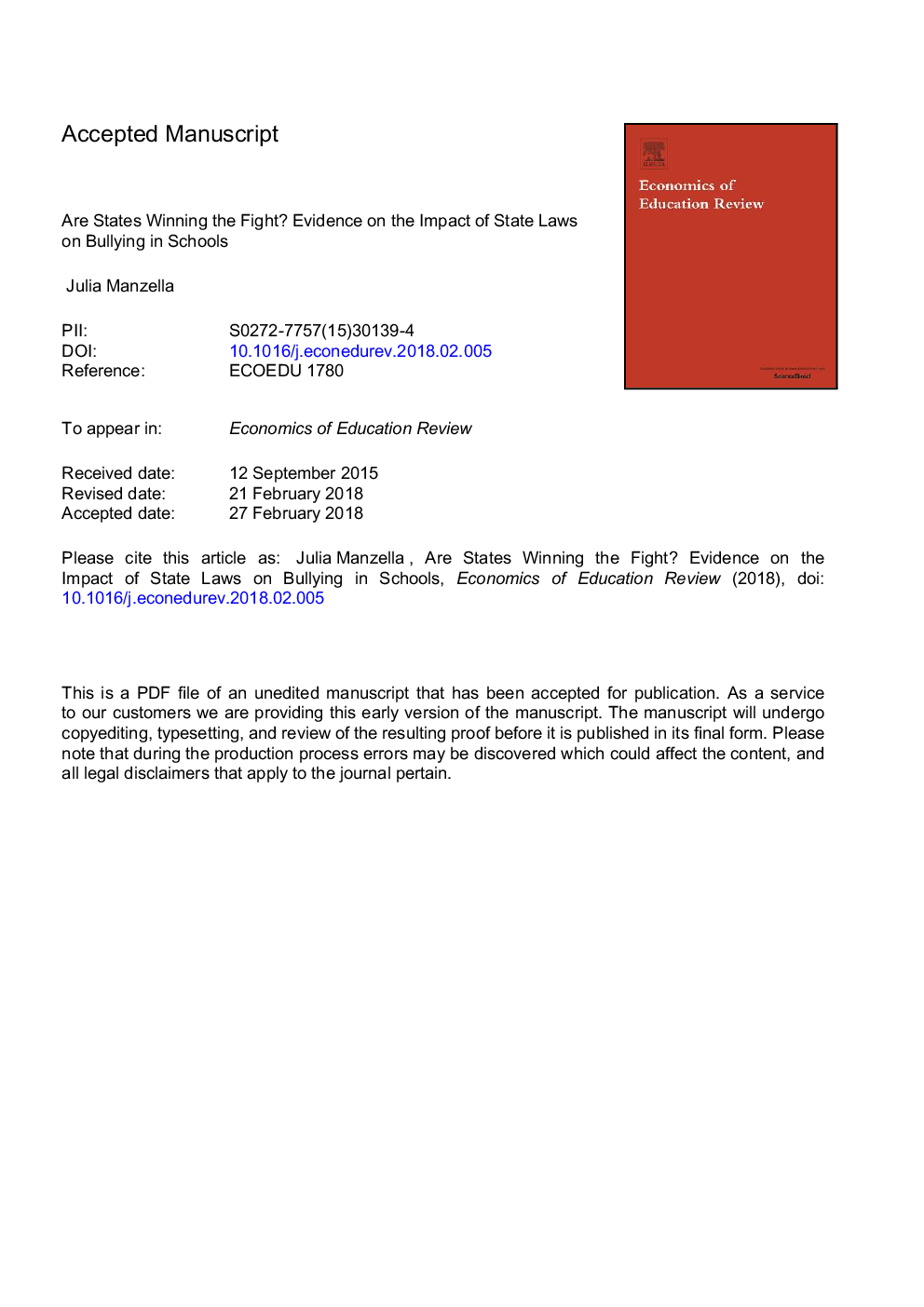| Article ID | Journal | Published Year | Pages | File Type |
|---|---|---|---|---|
| 6840785 | Economics of Education Review | 2018 | 56 Pages |
Abstract
Bullying is a prevalent problem. Researchers have provided legislative recommendations to combat it. Examining whether, and to what extent, state laws reduce in-school bullying is important for several reasons beyond providing guidance for federal legislation that would unify state laws. Bullying can be financially problematic for schools. An economics literature suggests bullying may have serious negative labor market consequences by disrupting cognitive and non-cognitive skill development. Bullying during youth may carry over into adulthood and have longer-run impacts within households, labor markets, and the larger economy. I conduct student- and school-level policy evaluations exploiting variation in timing and type of law in conjunction with data from large nationally representative surveys. State legislation may have little effect on reported bullying in high schools, however, reported bullying occurs most often in middle schools. Estimated policy impacts vary across elementary, middle and high school student populations. Current challenges facing research on bullying are revealed.
Keywords
Related Topics
Social Sciences and Humanities
Economics, Econometrics and Finance
Economics and Econometrics
Authors
Julia Manzella,
